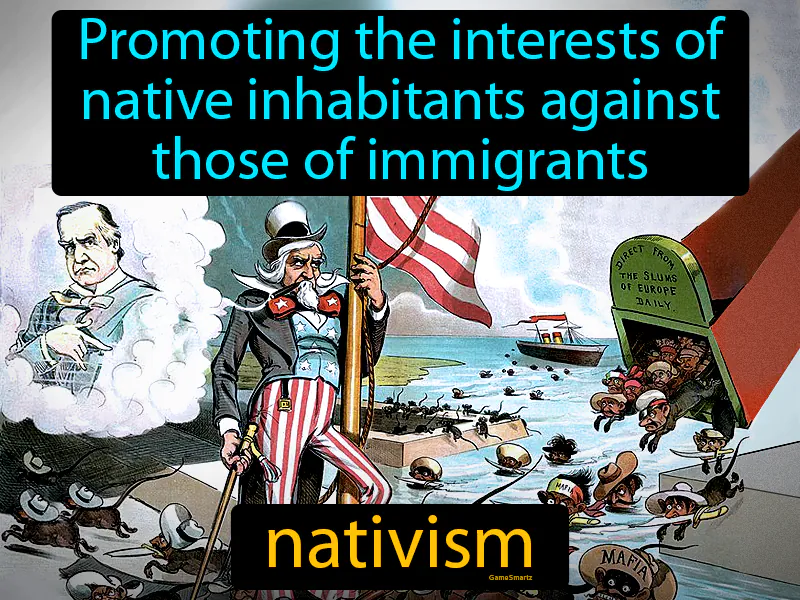Nativism
Nativism: Easy to understand
During the period of 1880-1915, nativism emerged as a reaction to the massive wave of immigrants arriving in the United States, particularly from Southern and Eastern Europe. Many native-born Americans felt threatened by the cultural differences and economic competition these new arrivals brought, leading to policies and attitudes that favored established residents over newcomers. This sentiment fueled the creation of restrictive immigration laws and contributed to discrimination against immigrants in jobs and housing. Today, nativism still matters because it influences debates on immigration policy and the treatment of new arrivals. For example, there can be community tensions when residents worry that immigrants might take jobs or change the cultural landscape, highlighting the need for understanding and dialogue.

Practice Version

Nativism: Promoting the interests of native inhabitants against those of immigrants. Nativism. Nativism is a belief or policy that favors the interests and culture of native-born individuals over immigrants.